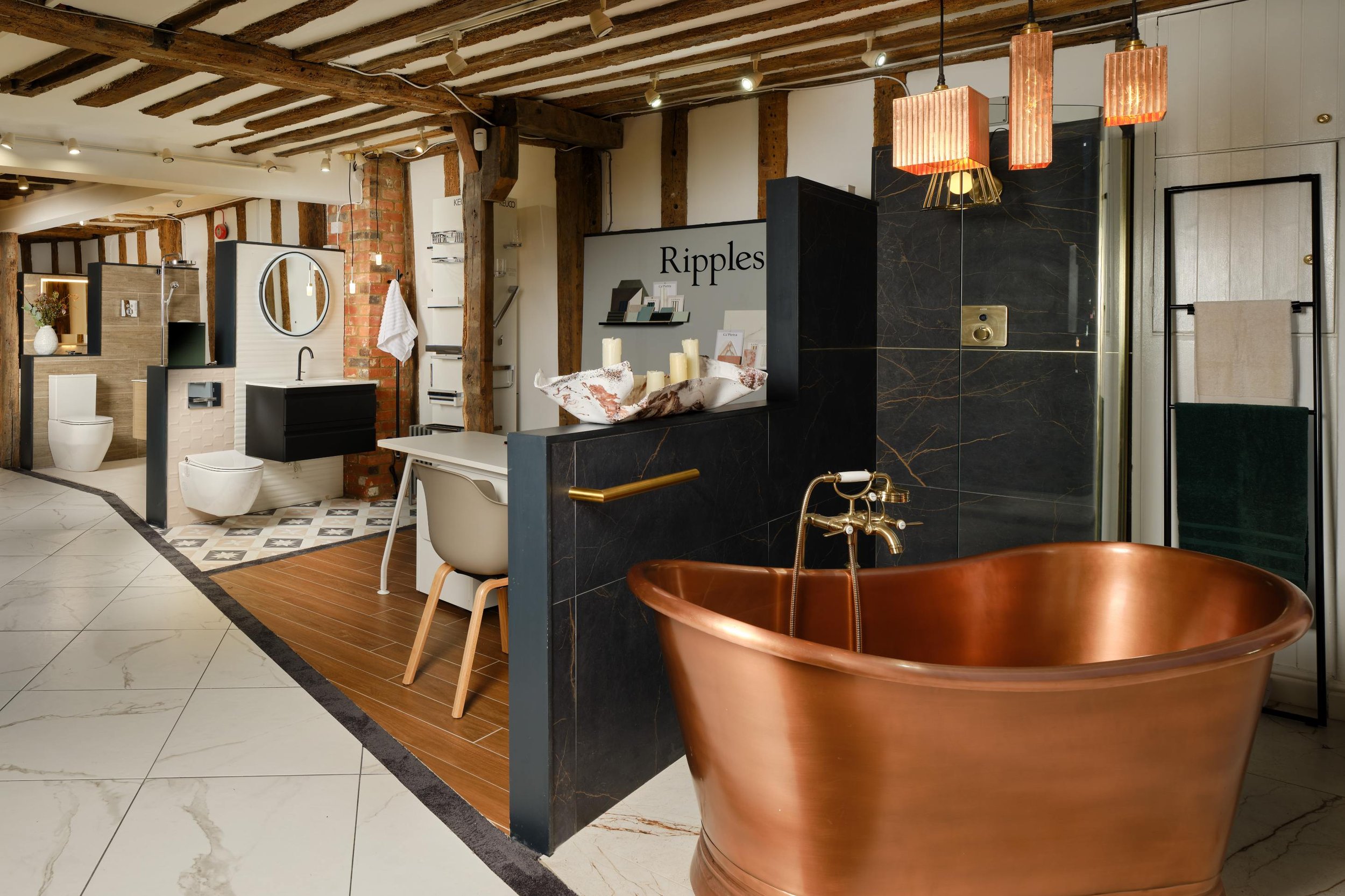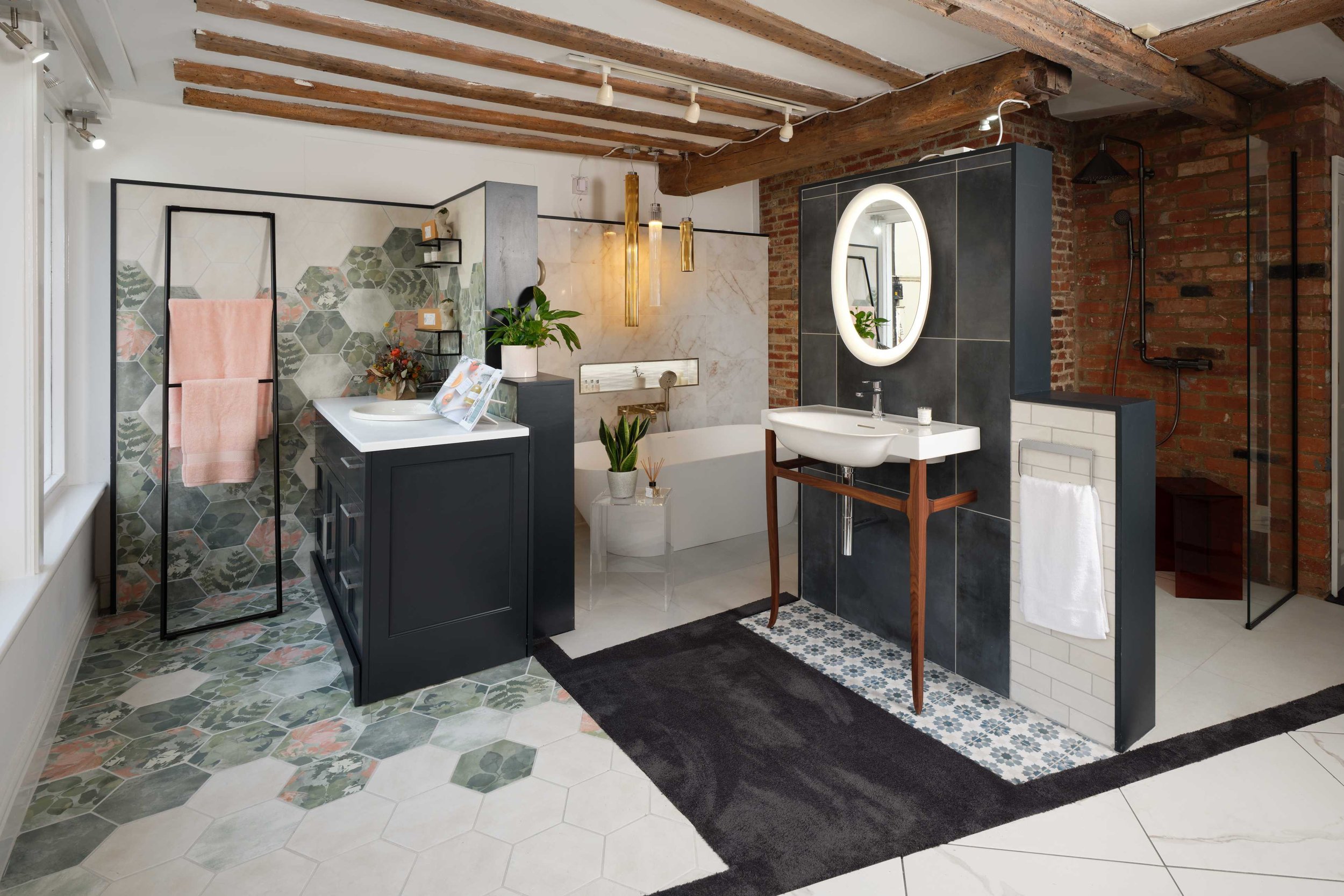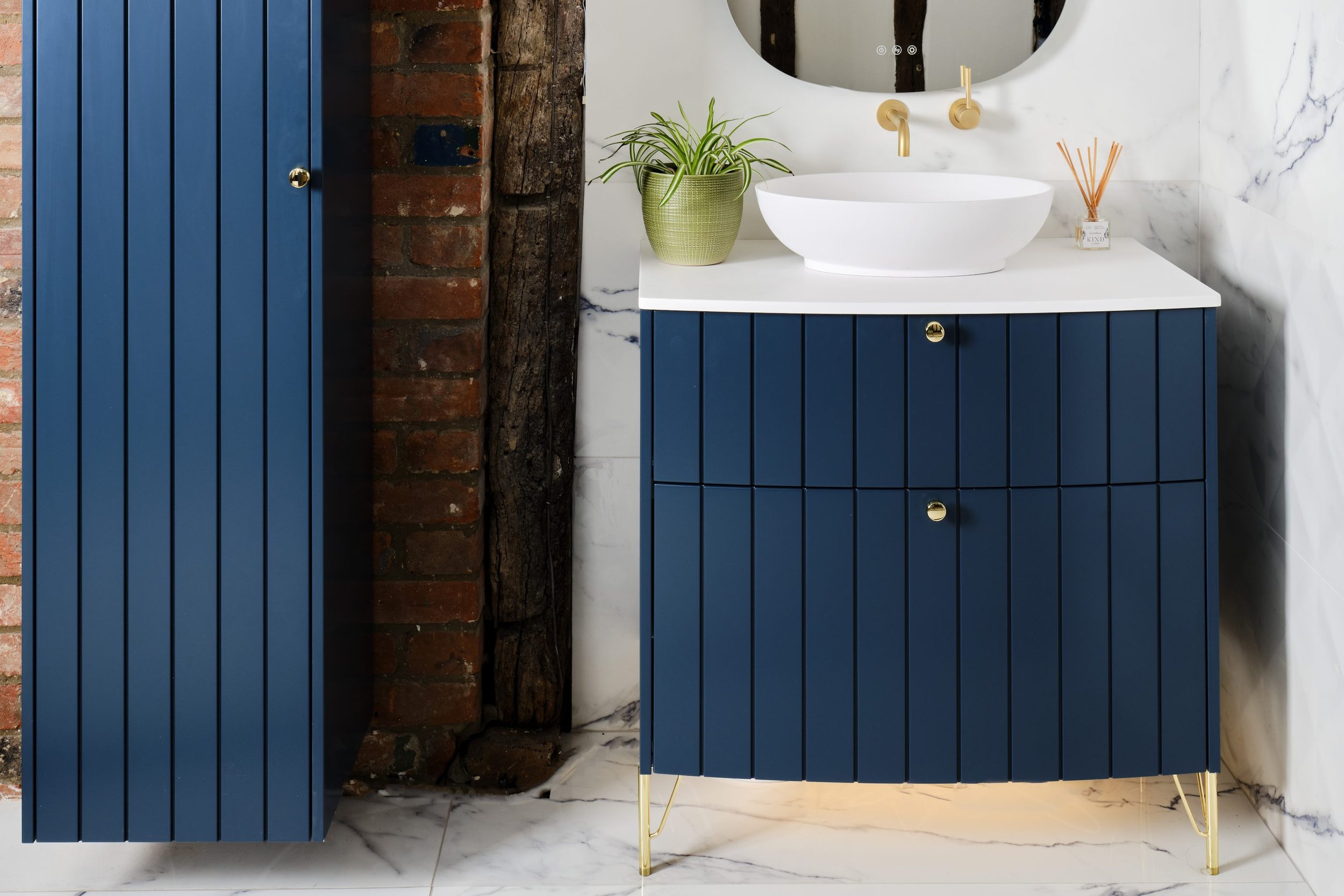A woman's journey in the bathroom business
With 17 years of corporate experience under her belt, Paula Callaway ventured into the realm of business ownership, driven by her passion for design and a desire to empower her clients. Here, we ask Paula to reflect on her journey, including the challenges she’s faced as a female entrepreneur and the invaluable lessons she’s learned along the way, offering a fresh perspective on the bathroom sector.
1. What inspired you to open your own Ripples showroom and what was the journey like?
For 17 years, I worked diligently in the same role, but there was always a part of me that dreamt of something more. Despite the stability and familiarity of my job, I felt destined to own my own business; I carried an entrepreneurial itch for as long as I can remember and my experiences in a structured corporate environment gradually gave me the confidence to consider taking that leap. The business knowledge and operational experience I had accumulated provided a strong foundation for starting something on my own, even though venturing into unfamiliar territory felt daunting.
It wasn’t until I came across an advertisement in a business magazine for the Ripples franchise that everything started to click. This opportunity seemed to blend the best of both worlds, allowing me to break into business ownership while maintaining the structure I was accustomed to. The franchise model offered the support and guidance I needed to tackle new challenges, which was incredibly appealing given that I’d never navigated such waters before. It felt like the perfect solution: I could finally fulfill my entrepreneurial ambitions while having the safety net of a tried-and-tested business model.
Paula Callaway outside her Ripples showroom in Saffron Walden
2. How have your experiences as a woman shaped your approach to leadership and running a business in the bathroom industry?
I’ve noticed a common thread in my experiences: most decisions are made in consultation with the woman of the house. This dynamic has allowed me to connect deeply with all my customers, ensuring we’re on the same wavelength when designing their dream bathrooms. Matching their passion and excitement is a significant advantage in this industry. It’s not just about selling a product; it’s about understanding their vision and delivering something that brings their dream space to life.
3. What challenges have you faced in establishing yourself as a female entrepreneur and how have you overcome them?
As the leader of the showroom, I feel a strong sense of responsibility and empowerment. My customers trust me to guide them through complex decisions and that trust reinforces my commitment to ensuring their complete satisfaction. Providing that confidence, while drawing energy from their enthusiasm, makes the entire process incredibly rewarding. My goal is always the same: to make the customer happy and ensure their vision is realised.
4. The bathroom industry can be quite male-dominated. Have you encountered any barriers because of your gender and how did you handle them?
Having worked in the construction industry for 25 years, which is also male-dominated, I am familiar with these challenges. I handle potential biases by focusing on building strong relationships—whether with clients or industry partners. I ensure my customers feel heard and understood, addressing their concerns with respect and professionalism. Being approachable, transparent and solution-oriented has helped me overcome any preconceived notions about my ability to lead in this industry.
Ultimately, I’ve learned that my gender is not a limitation but an asset. It has given me a unique perspective on customer service, design and attention to detail, which resonates well with clients. I’ve embraced my position as a business owner and leader and the challenges I’ve faced have only made me more determined to succeed.
5. What role do you think mentorship plays for women in business, and have you had any female role models or mentors along the way?
While I haven’t had a formal female mentor, I’ve been inspired by strong female role models who have excelled in industries where they weren’t expected to, pushing boundaries and redefining leadership. Their stories have shown me that resilience and determination are key to thriving, regardless of the obstacles.
7. How do you manage work-life balance, especially in a business that can demand a lot of your time and energy?
Managing work-life balance is definitely a challenge and it’s something I’ve had to become very intentional about. The nature of business ownership means there’s always something demanding your time or attention—whether managing operations, working with clients, or strategising for growth. It can be all-consuming if you’re not careful. I make sure to attend yoga twice a week and enjoy walking in the countryside to clear my head. It always grounds me afterward. I also love going out with my girlfriends to dance and unwind. I highly recommend this as a form of self-care; it keeps you young and is a lot of fun!
8. What advice would you give to other women who aspire to enter the world of business, particularly in luxury design or retail?
First, trust in your vision. In industries like luxury design, creativity, attention to detail and personal expression are essential. Don’t hesitate to bring your unique perspective to the table—your instincts are often your strongest asset.
Second, build your network and find mentors. Attend industry events, join design associations and connect with established professionals. Relationships matter greatly in any sector. Many opportunities arise from who you know just as much as what you know so reach out to women who are thriving in the industry—they can offer valuable guidance, share insights and open doors for you.
Lastly, invest in yourself and your education. The luxury market demands a high level of expertise, from understanding design trends to mastering client relations.




